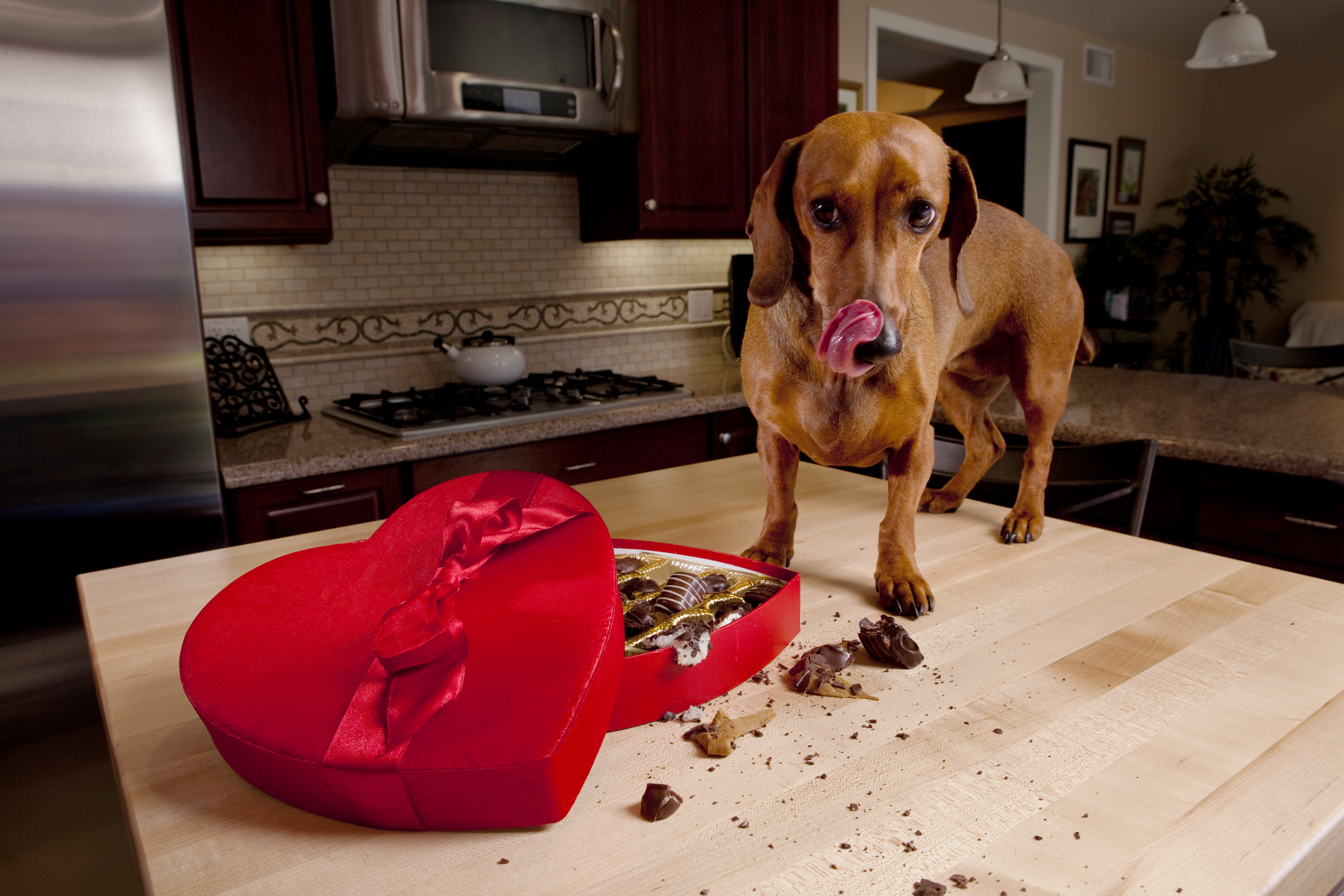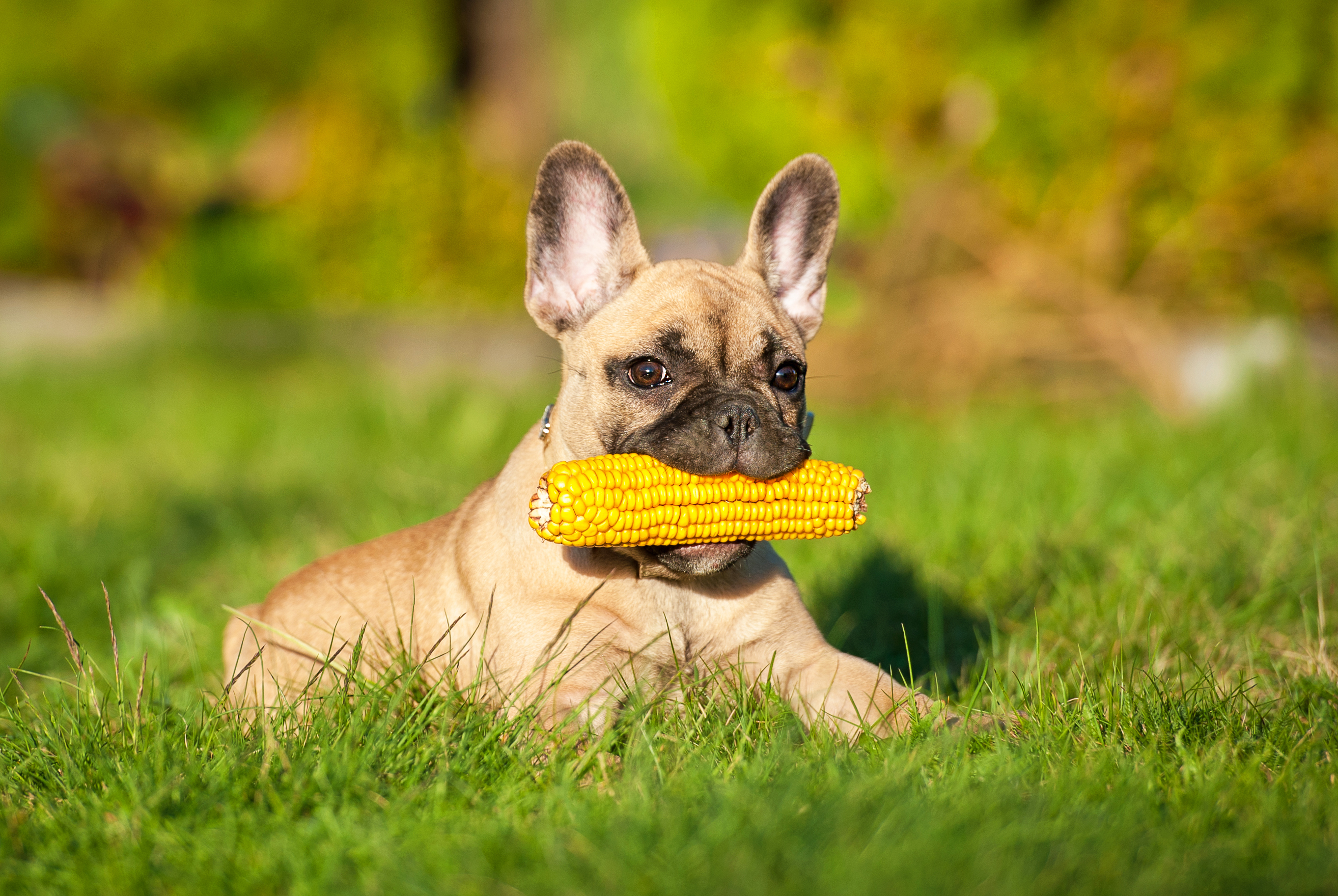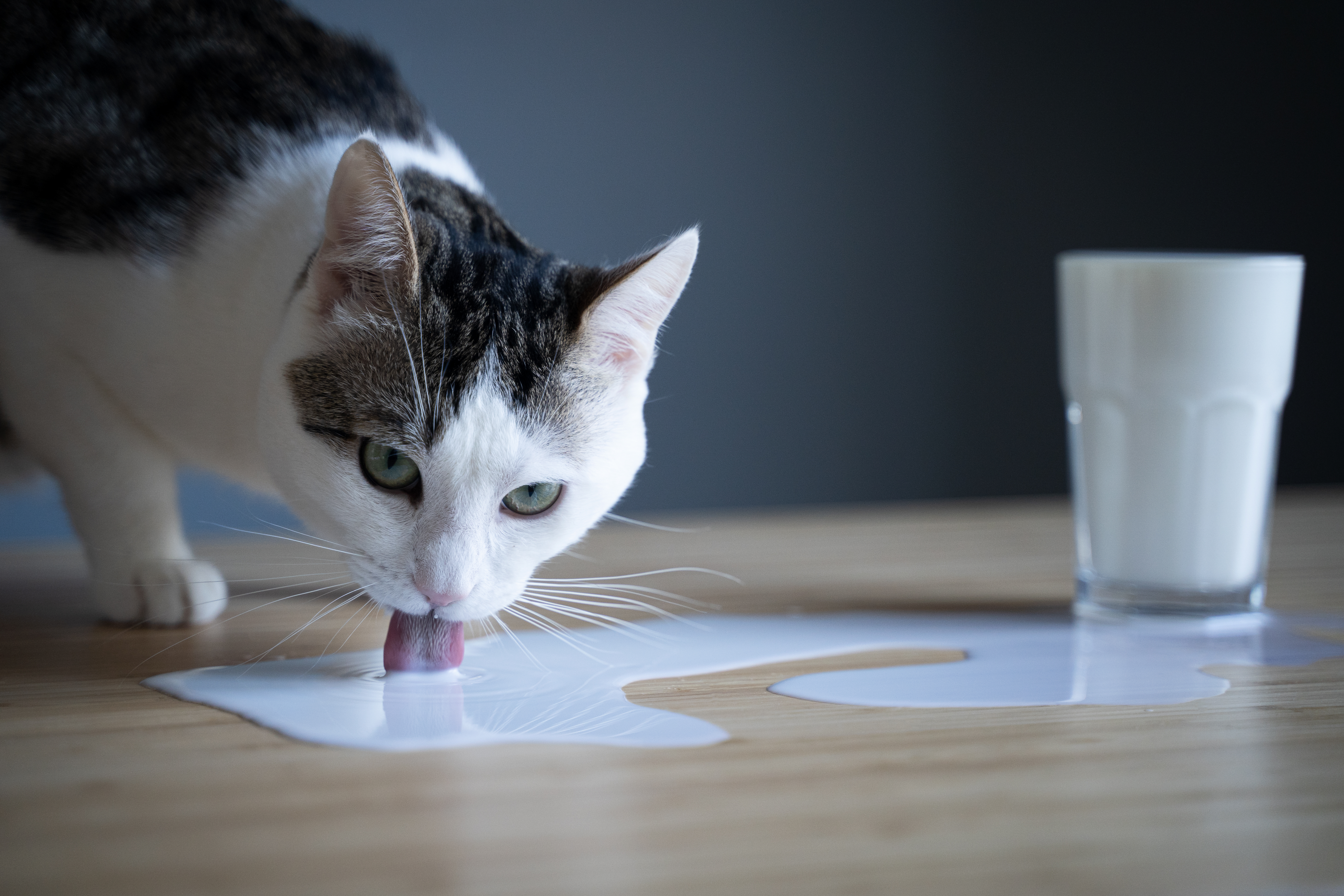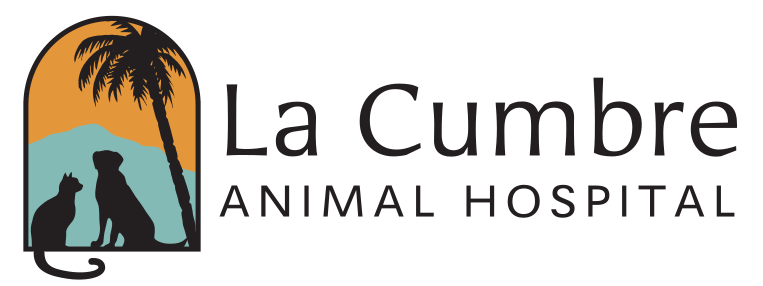As veterinarians and animal lovers, we get it—feeding your dog or cat your leftovers is fun. It makes them feel more like family, right? And nine times out of ten, we're okay with that, as long as you're not overfeeding or feeding more people food than dog or cat food. Of course, we don't want to hear, "He's got kibble available all the time, but he oddly seems to prefer my eggs and bacon over his kibble." As we all know, that which we prefer is not necessarily that which is best for us!
Let's review the list of things not to feed your pet (with a quick list of some healthy human foods you can give them on occasion). You've probably heard most of these before, but some might surprise you, and others have such toxic effects that they bear repeating! While most of this list pertains to dogs, many of these items can be harmful to cats, too.

Toxic Foods to Cats and Dogs
1. Chocolate, coffee, caffeine
Understand that just because it's got chocolate doesn't mean it's toxic. Toxicity is dose-related to the type of chocolate. Specifically, the toxic compounds inside chocolate are called methylxanthines. Caffeine is one of many types of methylxanthine. The more methylxanthines a product contains, the more toxic it is to dogs—so dark baker's chocolate is super toxic. Milk chocolate that contains barely any actual chocolate is far less toxic. In fact, most dogs who eat small amounts of milk chocolate get some stomach upset from the milk fat contained in the chocolate and probably some diarrhea, but that's about it.
NOTE: We often get calls from pet owners concerned that their dog ate not just the chocolates but the wrappers too. Fear not, as those usually pass. Always feel free to call us if you've been monitoring them and haven't seen the wrappers pass.
2. Xylitol
Nearly every sugarless chewing gum out there now contains this artificial sweetener, and it's super toxic to dogs. What's worse is dogs love the taste of it!
Xylitol can often cause the following progression in dogs:
- A rise in insulin level
- A drop in their blood sugar
- Seizures
- Coma
- After a few days, liver failure
Intravenous fluids containing sugar can ward off many of the evil effects of xylitol, so prompt attention at the veterinary ER is necessary in many cases of xylitol toxicity. Even then, there's always the chance of permanent liver damage. So we'll repeat it: DOGS LOVE THE TASTE OF SUGARLESS GUM. We don't know why—regardless, do whatever it takes to keep your purse locked up.
Xylitol can also be found in various kinds of peanut butter, so make sure to check the ingredients before sharing this special treat with your pup!

3. Corn cobs
No one feeds these on purpose, but dogs are oddly attracted to cobs in your trash can. Suffice it to say if your dog swallows a cob in one bite, it's unlikely to get all the way through to the other end without help. Gnawing on a cob is fine. Swallowing a cob is not. It's best to keep dogs from accessing them at all, as we all know dogs can't be trusted when they're really excited about something!
4. Raw meat and bones
There's a fascinating push right now in some circles that encourage the feeding of raw diets to dogs. We won't get into all that here, but suffice it to say every veterinarian worth their salt (and the AVMA) agrees that feeding untreated raw meat and bones is dangerous. Don't be tempted! Call your veterinarian for advice and guidance if your dog does happen to swallow a chicken bone, cooked or raw. Sometimes we freak out, and sometimes we don't—it depends on the circumstances of the foreign body ingestion. Most times, if the bone gets past the esophagus and down into the stomach, we'll have you wait and see for symptoms of stomach upset or diarrhea.
5. Avocado
Wait, avocado? The ASPCA states pretty convincingly on their website that every part of the avocado plant is toxic. Then again, Advoderm® Pet Food, which makes pet food from avocados, has said: "AvoDerm® pet products use only carefully selected suppliers of avocado meal and avocado oil. Years of problem-free consumption of these products indicate that AvoDerm products are not only safe for dogs and cats but also provide vital nutrients for them." So the jury may still be out on this one—as always, check with your veterinarian.
6. Onions, garlic, chives
In quantity, these can cause blood thinning, although most veterinarians will tell you we don't see these cases often.

7. Milk
Not really toxicity, per se, but most dogs (and cats!) are lactose intolerant, so don't give them a whole bunch, or you'll regret it later at the back end...
8. Raisins and grapes
These are oddly toxic to the dog's kidney. Consumption of either demands immediate medical attention.
9. Macadamia nuts
Again, these are oddly toxic to dogs.
Human Foods That Are Healthy For Your Pets
Not all human foods are taboo to your pets. In fact, some of them are great to feed them! As with anything in life, moderation is key, but there isn't anything inherently toxic about these foods, and they all make great treats.
The following are pet-healthy human foods:
1. Bananas
2. Apples
3. Carrots
4. Broccoli
5. Green Beans
6. Yogurt (including frozen yogurt in the summer - low or no sugar, please, but make sure your alternative doesn't include Xylitol in place of the removed sugar)
7. Pumpkin
8. Sweet potatoes
9. Eggs (COOKED, please! Raw eggs may contain Salmonella or E. Coli, and an enzyme called avidin that decreases the absorption of biotin [a B vitamin], which can lead to skin and coat problems)
10. Peas
11. Peanut butter (without Xylitol) - put it in your dog's Kong!
12. Cottage Cheese
13. Melons: Watermelon, cantaloupe and honeydew
14. Blueberries, blackberries, strawberries, huckleberries, or raspberries (try 'em frozen!)
Remember, your veterinarian should always be your go-to cat and dog nutrition source. If you still have questions about what foods are safe to feed your pets, please call us!
